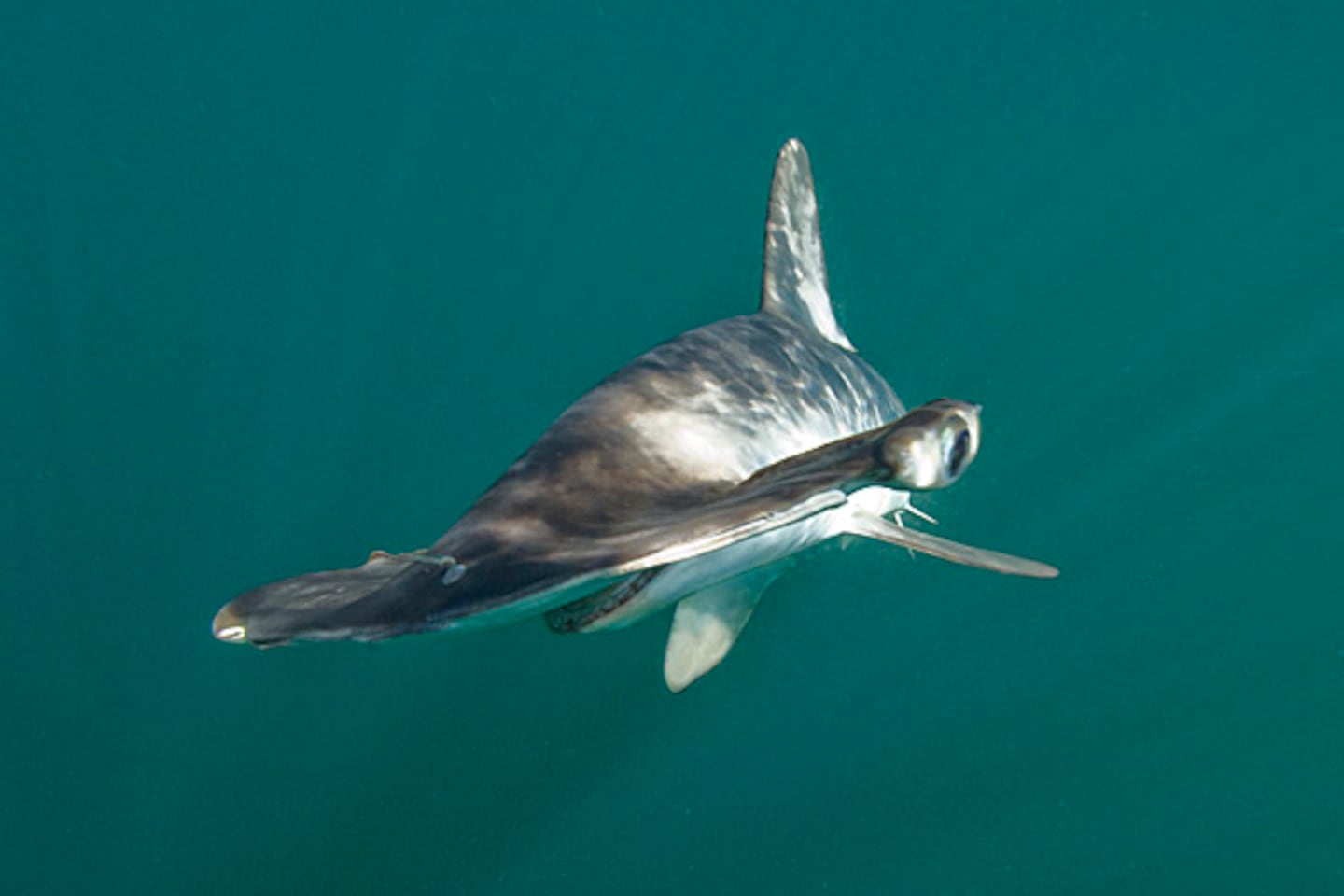Marine scientist John Chisholm is used to getting calls about shark sightings in summer.
But the inquiries this month have been more frequent, with multiple calls last weekend alone reporting smooth hammerhead sharks at the entrance to Buzzards Bay.
“Smooth hammerhead sharks have never been common in this area, but we’ve been seeing more of them the past few years as the water warms,” explained Chisholm, an adjunct scientist at the New England Aquarium’s Anderson Cabot Center for Ocean Life. “We started getting sporadic reports a few weeks ago, but there was a flurry of calls last weekend.”
Smooth hammerhead sharks are one of the largest hammerhead shark species, and they typically reside in temperate waters in coastal or tropical areas, according to ocean conservation nonprofit Oceana. This makes the species a rare sight as far north as Massachusetts, where the water is cooler.
Reports of a smooth hammerhead shark spotted off Chatham was reported last summer, the Globe reported.
According to Chisholm, Massachusetts beachgoers should exercise the normal amount of caution when entering the water, but there’s no need for increased concern.
Shark attacks are extremely rare, but shark experts recommend being aware of your surroundings while in the ocean, swimming only when it’s light out, avoiding reflective jewelry, staying away from fish, and remaining calm if you see a shark. On July 4, two teens paddleboarding off Stony Beach in Woods Hole escaped unscathed after spotting a great white shark by resisting the urge to panic and getting safely to shore.
“These sharks are fish eaters, they’re not interested in humans,” he said. “That said, they need to be treated with respect, because they are predators and they have the potential to bite. They’re not pets.”
White sharks, a cold-water species which has always been a staple in New England waters, are also growing in number. Just over this weekend, there have been two confirmed white shark sightings off North Beach Island, five off Monomoy Island, and two in Cape Cod Bay, according to the Atlantic White Shark Conservancy’s Sharktivity app.
Unlike smooth hammerheads, the increase in white shark sightings is more likely owed to population growth following stricter laws surrounding shark fin removal and harvesting. This increase has also coincided with shifting attitudes towards sharks as the widespread fear of great whites precipitated by “Jaws” has died down.
Biologists don’t yet know what impact the evolving makeup of the regional marine ecosystem will have on local fish populations. However, Chisholm emphasized the importance of reporting shark sightings to scientists like him so that they can continue to gather data on how the changing climate is affecting marine wildlife.
